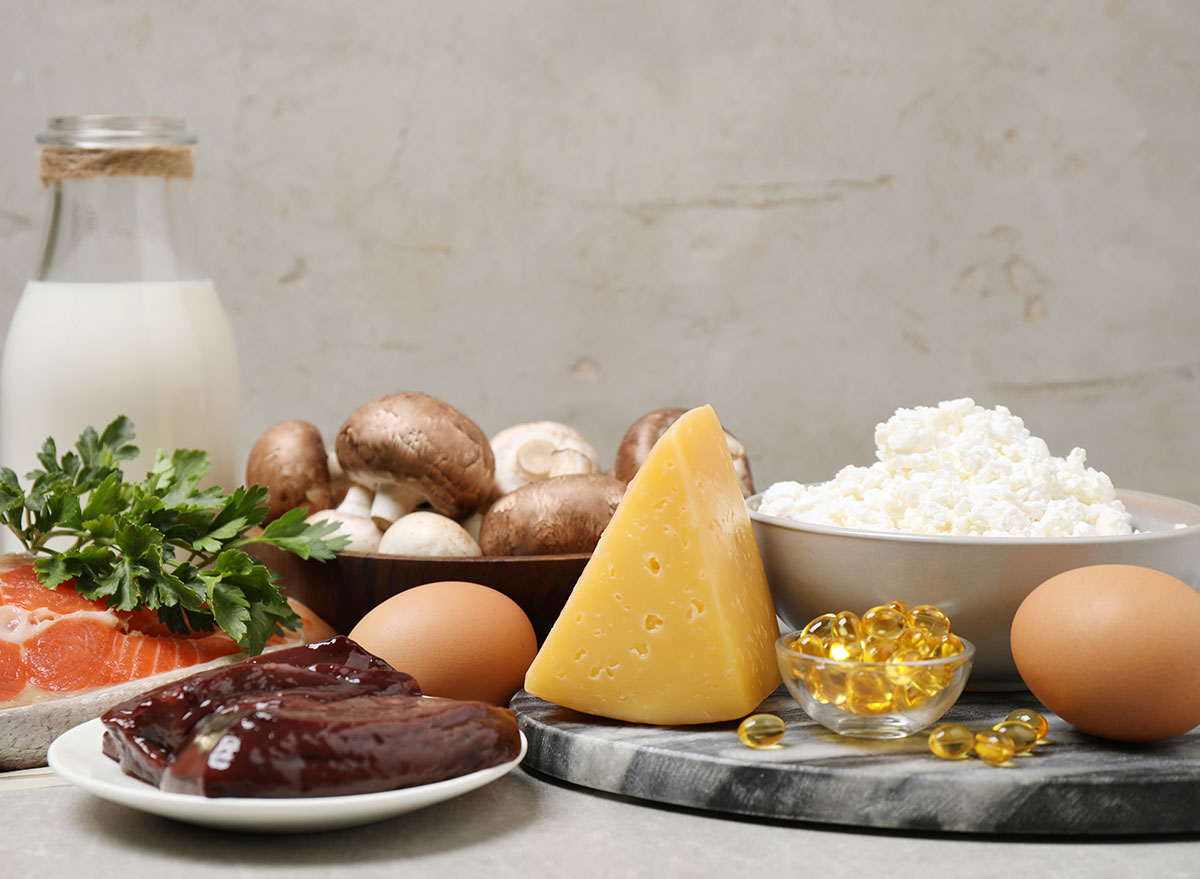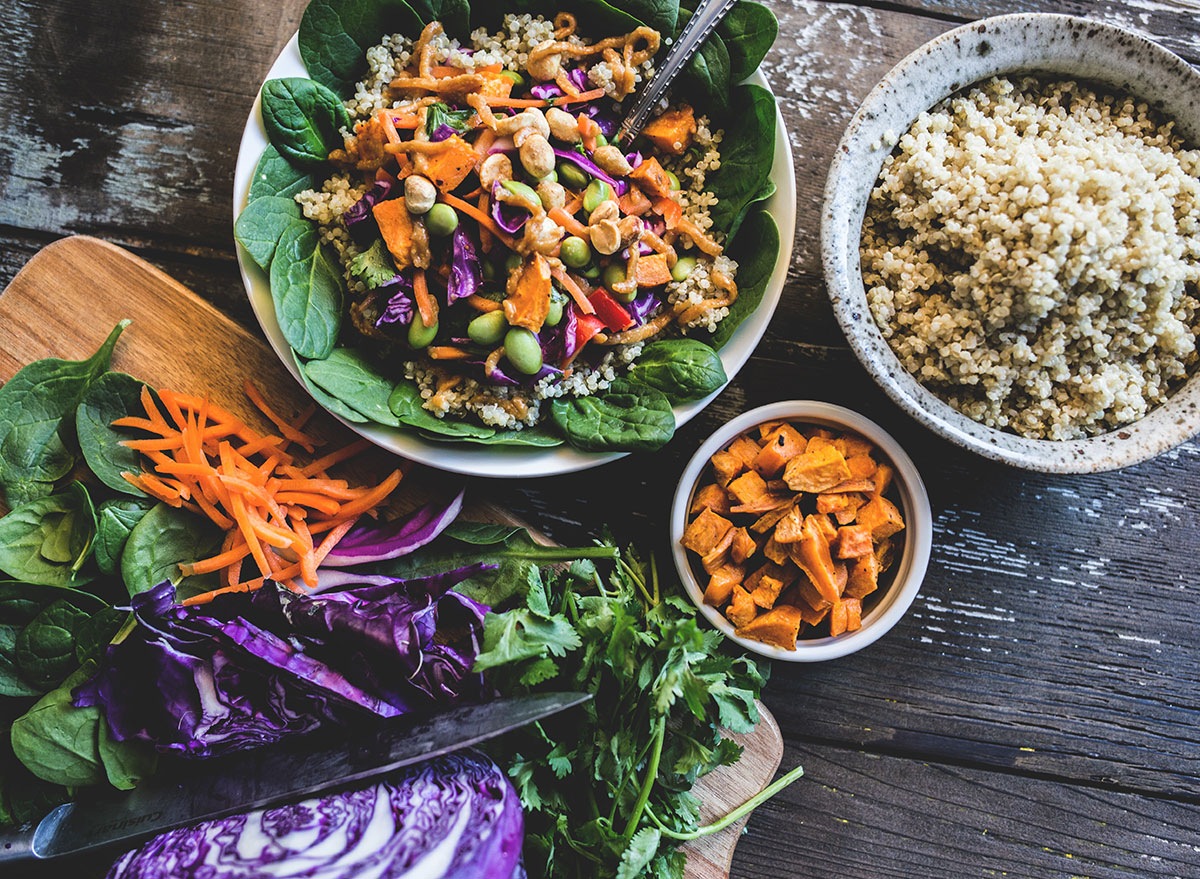3 Ways Your Diet Is Making You Vulnerable to the Delta Variant

It’s a fact: The best available tool to protect yourself from being hospitalized by the Delta variant is the COVID-19 vaccine. Individuals who aren’t vaccinated are 10 times more likely to be hospitalized and 11 times more likely to die from the disease, according to the latest research from the Centers for Disease Control and Prevention.
Still, recent research suggests that what you eat could play a role in how well you fare with the Delta variant. Below, you’ll learn three ways in which your diet may potentially put you in harm’s way of COVID-19. We also share the findings of a brand new study that pinpoints one diet’s possible ability to protect you from experiencing severe symptoms.
Eating processed foods may increase your risk of underlying conditions that make you more vulnerable to COVID-19.

In a previous article for Eat This, Not That!, Ashley Kitchens, MPH, RD, LDN, explained that consuming a diet full of ultra-processed foods could potentially increase your chances of experiencing adverse complications of COVID-19. To be clear, eating fast food or a bag of chips won’t directly cause you to experience complications with COVID-19 or the Delta variant. Before vaccines were available, many health experts found that those with certain underlying conditions were more likely to experience severe COVID-19 symptoms.
“Individuals who have serious heart conditions, like cardiovascular disease, and a body mass index [BMI] of 40 or higher fall under the category of those who are at a higher risk for severe illness and adverse complications from COVID-19,” Kitchens said. “Poor eating habits and other lifestyle factors can play a large role in determining one’s risk of heart disease and BMI, which in turn puts people in the high-risk group for severe illness from COVID-19.”
These same habits and related conditions may put someone at increased risk of adverse symptoms with the Delta variant, especially in those who are unvaccinated.
Related: Don’t forget to sign up for our newsletter to stay on top of all of the latest food and health news!
Eating junk food can weaken your immune system.

In the same article, Sydney Greene, MS, RD, and member of the Eat This, Not That! Medical Expert Board, explained that certain foods can increase inflammation in the body. If you routinely eat foods that promote an inflammatory response, this could turn into chronic inflammation, which has been shown to play a role in many diseases, including cardiovascular disease and diabetes.
Not to mention, inflammation weakens your immune system, which could make you more susceptible to illness caused by an infectious disease like the Delta variant, for example, in the immediate term.
“Processed foods, with their high sugar levels, omega-6 fatty acids, excess sodium, and junky additives, on the other hand, can stoke the fire of inflammation,” Greene said. “When inflammation is high, it taxes the immune system leaving us more susceptible to disease and illness.”
Not getting vitamin D could make you more susceptible to severe COVID-19 symptoms.

Many peer-reviewed studies have indicated that low vitamin D levels in some individuals are associated with increased susceptibility to severe complications of COVID-19. There isn’t enough research yet on whether or not this is the case for the Delta variant, but in the interim, it may be a good idea to start taking a vitamin D supplement. However, always be sure to speak with your physician before taking any new supplements.
The good news . . .
A plant-based diet may provide some protection against the Delta variant.

A new study led by researchers at the Harvard-affiliated Massachusetts General Hospital (MGH) published in the journal Gut suggests that those who consume a predominantly plant-based diet may be less likely to experience severe COVID-19 symptoms. More specifically, those who ate mostly plants demonstrated a lower risk for developing metabolic conditions like type 2 diabetes and obesity—both of which have been linked to increased risk of COVID-19, as indicated above.
“Although we cannot emphasize enough the importance of getting vaccinated and wearing a mask in crowded indoor settings, our study suggests that individuals can also potentially reduce their risk of getting COVID-19 or having poor outcomes by paying attention to their diet,” co-senior study author Andrew Chan, a gastroenterologist and chief of the Clinical and Translational Epidemiology Unit at MGH, said in a statement.
To learn more, don’t miss Surprising Effects of Eating Plant-Based Foods, Science Says.








